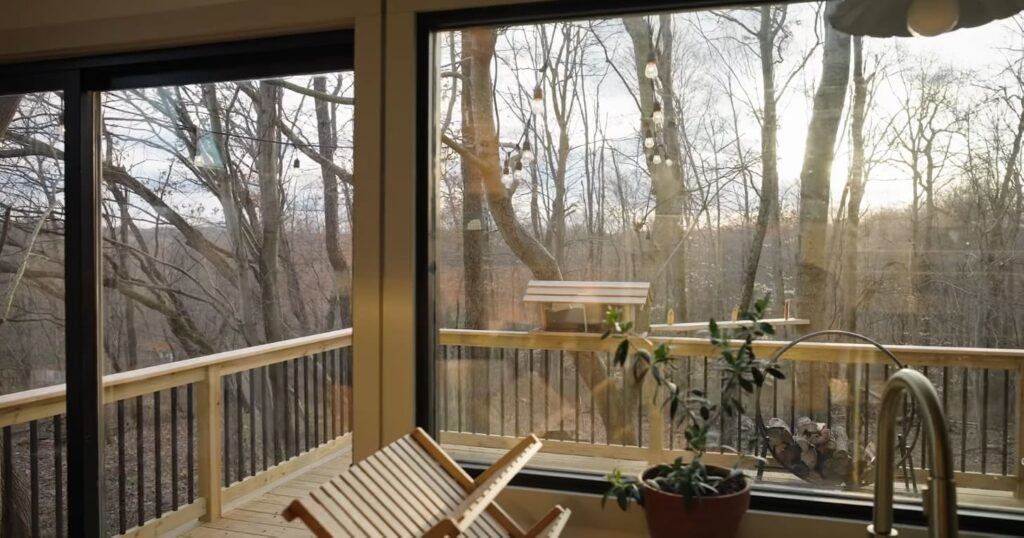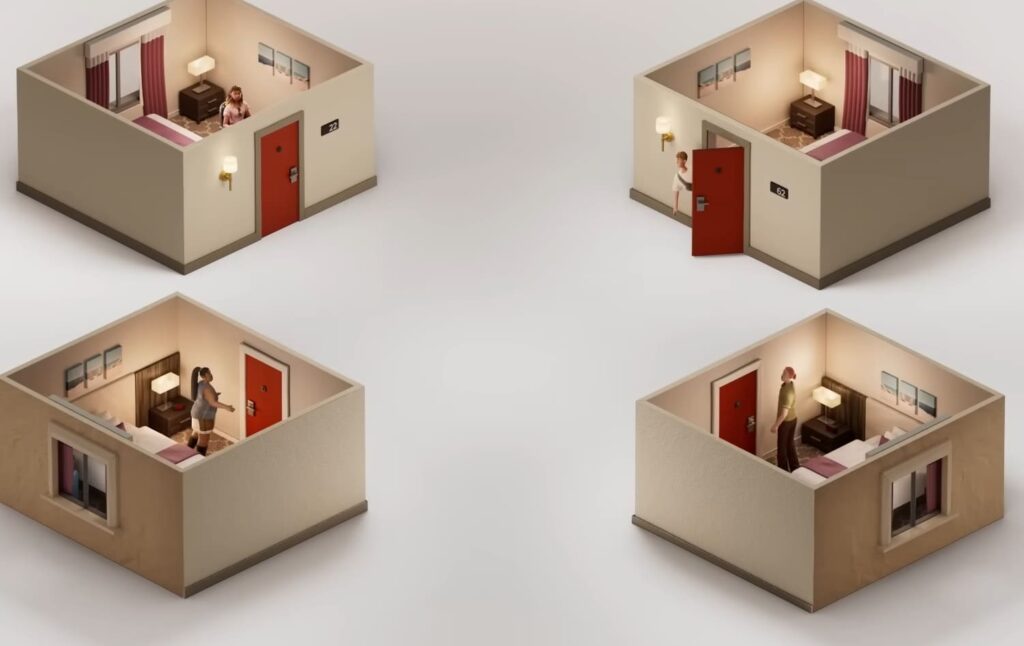Planning a vacation is an exhilarating experience, where we envision exploring new destinations, immersing ourselves in different cultures, and creating memories that last a lifetime. However, the financial aspect of travel can often pose a challenge, requiring careful budgeting to ensure a stress-free adventure. In recent years, the rise of flexible payment solutions, such as Afterpay, has transformed the way consumers handle their expenses by allowing them to split payments into manageable installments.
When it comes to booking accommodation, Airbnb has become synonymous with unique stays, personalized experiences, and the convenience of finding a home away from home. But does Airbnb take Afterpay? For travelers who are interested in spreading their payments and enjoying the flexibility of Afterpay, this question becomes crucial.
In this article, we will explore the question of whether Airbnb accepts Afterpay and dive deeper into the payment options available on the platform. We’ll also discuss the advantages and limitations of using Afterpay for your vacation rentals, and explore alternative payment methods that may be available to enhance your booking experience.
Whether you’re a seasoned traveler or a novice adventurer, understanding the payment options provided by Airbnb can significantly impact your travel planning. So, let’s embark on this journey together as we uncover whether Airbnb truly embraces the Afterpay revolution and discover how it can simplify your vacation budgeting.
Does Airbnb Accept Afterpay?
Airbnb did not offer Afterpay as a payment option. However, it’s essential to keep in mind that payment methods and policies of companies can change over time. Therefore, I recommend checking Airbnb’s official website or contacting their customer support directly to get the most up-to-date information on their accepted payment methods, including whether they now support Afterpay or any other flexible payment solutions.

Why Doesn’t Airbnb Accept Afterpay?
The specific reasons why Airbnb doesn’t currently accept Afterpay or other buy-now-pay-later services may vary, as the company’s decision-making process can involve a range of factors. While I don’t have access to Airbnb’s internal decision-making processes, I can offer some possible reasons why they may not have integrated Afterpay into their payment options:
- Business Agreements: Integrating Afterpay or similar services requires partnerships and agreements between companies. It’s possible that Airbnb and Afterpay have not yet reached a mutually beneficial agreement that satisfies both parties’ requirements.
- Risk and Fraud Management: Accepting Afterpay could introduce potential risks and complexities related to fraud prevention and payment processing. Companies like Airbnb need to prioritize the security and integrity of their payment systems to protect both guests and hosts.
- Financial Considerations: Implementing a new payment method involves costs and operational considerations. Airbnb may need to evaluate the financial impact of integrating Afterpay, including transaction fees, infrastructure changes, and ongoing maintenance expenses.
- User Experience and Technical Integration: Integrating Afterpay into Airbnb’s existing booking system might require significant technical resources and development efforts. Airbnb may need to assess the impact on the user experience, ensuring a seamless integration without compromising functionality or creating complexities for users.
- Market Demand and Priorities: Airbnb continuously assesses market trends and customer preferences to prioritize features and services. While Afterpay has gained popularity in some markets, Airbnb may have determined that the demand for this payment option is not substantial enough to warrant immediate integration.
It’s important to note that the reasons mentioned above are speculative, and the actual rationale behind Airbnb’s decision not to accept Afterpay may differ. To obtain accurate information on why Airbnb doesn’t currently support Afterpay, reaching out to Airbnb directly or monitoring their official announcements and updates would be the best course of action.

How Can I Pay At Airbnb?
Airbnb offers several payment methods for booking accommodations. Here are some common payment options available on Airbnb:
- Credit or Debit Cards: Airbnb accepts major credit and debit cards, including Visa, Mastercard, American Express, and Discover. You can securely enter your card details during the booking process.
- PayPal: In select countries, Airbnb allows payments through PayPal. If this option is available to you, you can link your PayPal account to your Airbnb profile and choose it as your preferred payment method.
- Google Pay: In certain regions, Airbnb supports Google Pay as a payment option. If you have a Google Pay account, you may be able to use it to complete your Airbnb booking.
- Apple Pay: If you’re using an Apple device, you can use Apple Pay as a payment method on Airbnb. This option is available in supported countries and devices.
Please note that payment methods can vary depending on your location and the specific terms and conditions set by Airbnb. To get the most accurate and up-to-date information on payment options available to you, I recommend visiting Airbnb’s official website or reaching out to their customer support directly.

Advantages Of Airbnb
Airbnb offers several advantages that have made it a popular choice for travelers worldwide. Here are some key advantages of using Airbnb:
- Unique Accommodation Options: One of the biggest advantages of Airbnb is the wide range of unique accommodation options available. Instead of traditional hotels, you can choose from apartments, houses, villas, cabins, treehouses, and even boats. This allows you to find accommodations that match your preferences and provide a more personalized and authentic travel experience.
- Cost-Effective: In many cases, Airbnb can be more cost-effective than traditional hotels, especially for longer stays or when traveling with a group. With Airbnb, you can often find accommodations at different price points to suit your budget, and you may have access to amenities like kitchens, which can help you save money on dining expenses.
- Local Experience: Staying in an Airbnb property often allows you to experience the destination like a local. Hosts can provide valuable insights and recommendations on local attractions, restaurants, and hidden gems that may not be found in guidebooks. This local knowledge can enhance your overall travel experience and provide a deeper cultural immersion.
- Amenities and Facilities: Airbnb listings often come equipped with a range of amenities and facilities that can enhance your stay. Depending on the property, you may have access to features such as fully equipped kitchens, private pools, gardens, laundry facilities, and more. These amenities can provide added convenience and comfort during your trip.
- Flexibility and Privacy: Airbnb offers flexibility in terms of check-in and check-out times, as well as the ability to communicate directly with hosts. This can be particularly beneficial for travelers with specific scheduling needs or those who prefer more privacy and independence during their stay.
- Safety and Trust: Airbnb has implemented various safety measures and features to ensure a secure experience for both guests and hosts. This includes identity verification, guest reviews, and secure payment systems. Additionally, Airbnb’s Host Guarantee provides protection for eligible damages to the host’s property during the stay.
- International Reach: Airbnb operates in numerous countries and cities worldwide, allowing you to find accommodations in various destinations. Whether you’re planning a local getaway or an international adventure, the extensive reach of Airbnb makes it easier to find suitable accommodations wherever you go.
It’s important to note that experiences can vary from one Airbnb property to another, and it’s always a good idea to carefully review the listing details, guest reviews, and communicate with the host to ensure that the property meets your specific needs and expectations.

Disadvantages Of Airbnb
While Airbnb offers many advantages, it’s also important to consider the potential disadvantages associated with using the platform. Here are some of the common concerns or drawbacks related to Airbnb:
- Quality and Consistency: Since Airbnb properties are owned and managed by individual hosts, the quality and consistency of accommodations can vary. While many hosts provide exceptional experiences, there is a possibility of encountering properties that do not meet your expectations in terms of cleanliness, amenities, or accuracy of descriptions.
- Cancellation Policies: Each Airbnb listing has its own cancellation policy set by the host, which can vary from flexible to strict. It’s important to carefully review the cancellation policy before booking, as some hosts may enforce strict cancellation terms that could result in potential fees or limited refunds.
- Limited Guest Support: Unlike hotels with dedicated customer service teams available 24/7, Airbnb’s guest support may have limited availability or response times. In case of issues or emergencies during your stay, it may take longer to resolve them compared to traditional hotel stays.
- Potential Booking Scams: While Airbnb takes measures to verify hosts and protect against fraudulent activity, there have been instances of booking scams or misleading listings. It’s crucial to stay vigilant, read reviews, and communicate with hosts directly to ensure the legitimacy and authenticity of the property and its host.
- Legal and Regulatory Considerations: Some cities or regions have specific regulations or restrictions on short-term rentals, including Airbnb listings. It’s important to familiarize yourself with local laws and regulations to ensure compliance and avoid any potential legal issues or disruptions during your stay.
- Noise and Neighborhood Factors: Depending on the location and specific property, there is a possibility of noise from neighbors or other factors that could impact the quality of your stay. It’s recommended to read guest reviews or reach out to the host to understand the neighborhood dynamics and potential noise concerns.
- Limited Hotel Amenities: While many Airbnb properties offer amenities and facilities, they may not provide the same level of services and conveniences as traditional hotels. Features such as room service, concierge, or daily housekeeping may not be available, depending on the property and the host’s offerings.
It’s important to note that these potential disadvantages are not applicable to all Airbnb stays, and many guests have positive experiences with the platform. However, being aware of these concerns can help you make informed decisions and have realistic expectations when booking through Airbnb.

FAQ
What Unusual Things Can Be Found At Airbnb?
One of the fascinating aspects of Airbnb is the wide variety of unique and unusual accommodations available. Here are a few examples of the types of unconventional properties you can find on Airbnb:
- Treehouses: Stay in a beautifully crafted treehouse nestled among the branches of majestic trees. These elevated accommodations provide a whimsical and nature-immersed experience, offering stunning views and a peaceful atmosphere.
- Castles: Live out your fairytale dreams by renting a castle. Many historical castles around the world have been transformed into enchanting Airbnb properties, allowing guests to step back in time and experience a taste of royal life.
- Yurts: Embrace a nomadic lifestyle by staying in a traditional yurt, a portable and circular tent used by Central Asian nomads. These unique structures often feature comfortable furnishings, cozy interiors, and the opportunity to connect with nature.
- Caves: Explore the hidden world beneath the surface by booking a cave dwelling. These unique accommodations offer a truly unconventional experience, with rooms carved into the natural rock formations, providing a cool and serene atmosphere.
- Boats and Houseboats: Experience life on the water by renting a boat or houseboat. Whether it’s a luxurious yacht, a charming riverboat, or a floating home, these accommodations offer a distinctive way to enjoy waterfront living and stunning views.
- Converted Spaces: Airbnb also offers converted spaces that have been transformed into extraordinary accommodations. Examples include renovated barns, converted churches, repurposed train carriages, and creatively designed shipping containers.
- Lighthouses: Fulfill your coastal fantasies by staying in a historic lighthouse. These unique properties offer breathtaking views of the surrounding coastline and provide a tranquil and secluded getaway.
- Igloos: For those seeking an adventure in icy landscapes, some Airbnb listings offer stays in authentic igloos. These snow or ice dwellings provide a remarkable experience, immersing guests in the beauty of snowy landscapes and offering a chance to witness the mesmerizing Northern Lights.
These are just a few examples of the unconventional accommodations available on Airbnb. The platform continues to surprise travelers with its diverse range of unique and extraordinary listings, making it possible to find accommodations that cater to different interests and preferences.
What Is Airbnb ?
Airbnb is an online marketplace and hospitality platform that allows individuals to rent out their properties, homes, or spare rooms to guests seeking accommodations. Founded in 2008, Airbnb has grown into one of the world’s largest and most popular lodging platforms, operating in over 220 countries and serving millions of travelers.
Through Airbnb, hosts can list their properties for short-term rentals, ranging from entire homes and apartments to unique accommodations like treehouses, yurts, and castles. Guests can search and browse through these listings, select the desired dates and location, and book accommodations directly with the hosts.
The platform offers a wide range of options to cater to different travel preferences and budgets. Guests can read reviews and view photos of the properties to make informed decisions. Hosts have the ability to set their own prices, house rules, and requirements, while Airbnb provides tools and guidelines to facilitate the booking process and ensure a smooth experience for both guests and hosts.
Airbnb’s mission is to create a world where anyone can belong anywhere, fostering a sense of community and cultural exchange through travel. It allows travelers to experience destinations from a local perspective, offering a more personalized and authentic experience compared to traditional hotels.
In addition to accommodations, Airbnb has expanded its offerings to include Experiences and Adventures. Experiences are activities or tours led by local hosts, providing guests with unique opportunities to engage in various cultural, culinary, or outdoor activities. Adventures are multi-day trips and excursions organized by experienced hosts, providing travelers with curated itineraries and immersive experiences in different parts of the world.
Airbnb revolutionized the way people book accommodations by connecting hosts and guests through an easy-to-use online platform, offering a diverse range of lodging options and creating new possibilities for travel experiences.
Related Video: How To Use Afterpay For Hotels
Summarize
Airbnb has established itself as a leading platform for booking accommodations worldwide, it does not currently accept Afterpay as a payment option. As of my knowledge cutoff in September 2021, Airbnb primarily accepts credit and debit cards, PayPal (in select countries), Google Pay, and Apple Pay for securing bookings.
Although the absence of Afterpay may be disappointing for those seeking flexible payment options, it’s important to recognize that Airbnb’s payment methods and policies can evolve over time. To stay up-to-date with the latest payment options available on Airbnb, it is recommended to visit their official website or reach out to their customer support for accurate information.
Regardless of the payment method, Airbnb continues to offer numerous advantages for travelers, such as unique and personalized accommodations, cost-effectiveness, local experiences, and a wide range of amenities. These advantages contribute to the platform’s popularity and ability to cater to diverse travel preferences.
As the travel industry constantly evolves, it is possible that Airbnb may introduce Afterpay or other flexible payment solutions in the future to further enhance the booking experience for its users. Keeping a watchful eye on updates from Airbnb will provide the most accurate information on any potential changes to their accepted payment methods.
In the end, whether you choose to use Airbnb or explore alternative accommodation options, it’s crucial to prioritize your budgeting and ensure that the chosen payment method aligns with your financial needs and preferences. By making informed decisions, you can enjoy your travel experiences to the fullest, while also managing your expenses effectively.
